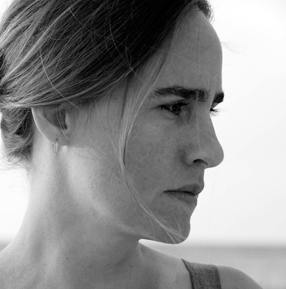Daywork
Close your eyes he said and took my hand.
There was something he wanted to show me,
something I couldn’t see. Raised like a scar,
a seam running through the body, here
where the day went dark. I’d wanted to see
the limits of sight, to know where the painter
had found an edge, and stopped,
the day done and the brushes washed,
the figure left to dry, in the dark room
someone half made would try to close his open eye
and find that eye will stay open and never see,
never see the rearing horse he rides
you know the posture you’ve leant back in the saddle
the beast beneath you pulled at its reins and told it to quit
it can’t quit it’s trying to it’s trying to stop
the bit in the mouth and no sight in its eyes
seen and yet blind this was the drama
he wanted to show don’t you think or think
of the woman holding the room on her shoulders
have you ever felt like that like you are to keep
very still while the others move around you
in birth I remember the midwife took my reins
is that right she held me here and there
and reached inside she was touching my baby
I had nothing to do but let it happen
I let it happen so well trained really a vehicle
you ride me or drive me oh but if you are the head
I am the neck I will turn you to my advantage
will make you see what is wrought through me
Copyright © 2015 by Jessica Fisher. Originally published in Poem-a-Day on October 8, 2015, by the Academy of American Poets.
“I lived in Italy a few years ago, and while there became interested in the giornata—the section of wet plaster that can be painted in a single day. Sometimes in a finished fresco you’ll see the seams of adjacent giornate or ‘days,’ an effect I like both because it reminds us of the constraints of a body working in time, and because it points to the fractured nature of vision and story. I wrote this poem after visiting Raphael’s Room of Heliodorus in the Vatican Museum with one of the men responsible for the restoration. We were high up on the scaffolding, eye to eye with the painted figures, and I wanted to see how the work had been made, only the master had fully covered his tracks. The poem begins with my being shown what in that case could not be seen.”
—Jessica Fisher

